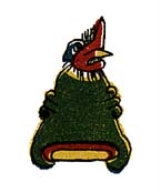
Ecatepec
Encyclopedia

Aztec
The Aztec people were certain ethnic groups of central Mexico, particularly those groups who spoke the Nahuatl language and who dominated large parts of Mesoamerica in the 14th, 15th and 16th centuries, a period referred to as the late post-classic period in Mesoamerican chronology.Aztec is the...
altepetl
Altepetl
The altepetl, in Pre-Columbian and Spanish conquest-era Aztec society, was the local, ethnically based political entity. The word is a combination of the Nahuatl words ā-tl, meaning water, and tepē-tl, meaning mountain....
or city-state
City-state
A city-state is an independent or autonomous entity whose territory consists of a city which is not administered as a part of another local government.-Historical city-states:...
in the Valley of Mexico
Valley of Mexico
The Valley of Mexico is a highlands plateau in central Mexico roughly coterminous with the present-day Distrito Federal and the eastern half of the State of Mexico. Surrounded by mountains and volcanoes, the Valley of Mexico was a centre for several pre-Columbian civilizations, including...
.
Tlatoque
From 1428 to 1539, Ecatepec was ruled by a tlatoaniTlatoani
Tlatoani is the Nahuatl term for the ruler of an altepetl, a pre-Hispanic state. The word literally means "speaker", but may be translated into English as "king". A is a female ruler, or queen regnant....
(literally "speaker"). The tlatoque (plural of tlatoani) of Ecatepec were closely related to the ruling dynasty of Tenochtitlan.
- Chimalpilli IChimalpilli IChimalpilli I was tlatoani of the Aztec altepetl of Ecatepec from 1428 until his death in 1465....
, grandson of Moctezuma IMoctezuma IMoctezuma I , also known as Motecuhzoma Ilhuicamina, Huehuemotecuhzoma or Montezuma I , was the fifth Aztec emperor - king of Tenochtitlan...
. - Tezozomoc, son of ChimalpopocaChimalpopocaChimalpopoca was the third king of Tenochtitlan .-Rule:On the day of Chimalpopoca's coronation in 1417 , his brother Tlacaelel I was named high priest...
. - Matlaccohuatl, whose daughter Teotlalco married Moctezuma IIMoctezuma IIMoctezuma , also known by a number of variant spellings including Montezuma, Moteuczoma, Motecuhzoma and referred to in full by early Nahuatl texts as Motecuhzoma Xocoyotzin, was the ninth tlatoani or ruler of Tenochtitlan, reigning from 1502 to 1520...
. - Chimalpilli II, son of Ahuitzotl.
- Diego HuanitzinDiego HuanitzinDon Diego de Alvarado Huanitzin was a 16th century Nahua noble. A grandson of Axayacatl, Nephew of tlatoani Moctezuma II. He was initially the tlatoani of Ecatepec before becoming tlatoani of Tenochtitlan, as well as its first governor under the colonial Spanish system of government.He had been...
, grandson of AxayacatlAxayacatlAxayacatl was the sixth Aztec Emperor, a ruler of the Postclassic Mesoamerican Aztec Empire and city of Tenochtitlan, who reigned from 1469 to 1481.He is chiefly remembered for subjugating Tlatelolco, Tenochtitlan's sister city, in 1473....
.
Diego Huanitzin was subsequently made tlatoani of Tenochtitlan by Antonio de Mendoza
Antonio de Mendoza
Antonio de Mendoza y Pacheco, Marquis of Mondéjar, Count of Tendilla , was the first viceroy of New Spain, serving from April 17, 1535 to November 25, 1550, and the second viceroy of Peru, from September 23, 1551 to July 21, 1552...
, viceroy
Viceroy
A viceroy is a royal official who runs a country, colony, or province in the name of and as representative of the monarch. The term derives from the Latin prefix vice-, meaning "in the place of" and the French word roi, meaning king. A viceroy's province or larger territory is called a viceroyalty...
of New Spain
New Spain
New Spain, formally called the Viceroyalty of New Spain , was a viceroyalty of the Spanish colonial empire, comprising primarily territories in what was known then as 'América Septentrional' or North America. Its capital was Mexico City, formerly Tenochtitlan, capital of the Aztec Empire...
.

